DevOps Managed Services: Accelerating Your Cloud Journey and Digital Transformation

Key Takeaways:
- DevOps Managed Services accelerate Cloud Adoption and Digital Transformation by providing expert implementation and management of DevOps practices and tools.
- These services offer access to specialized expertise in areas like CI/CD, Infrastructure as Code (IaC), monitoring (Log Analytics), Site Reliability Engineering (SRE), and security, often exceeding in-house capabilities.
- Key benefits include significant cost optimization compared to building internal teams, improved application reliability and performance, an enhanced security posture (DevSecOps), and predictable operational costs.
- Outsourcing DevOps operations allows internal IT and development teams to focus on core business objectives, innovation, and strategic initiatives, driving faster business value.
- Effective services encompass assessment, CI/CD pipeline management, IaC, monitoring/alerting, cloud optimization, security integration, container orchestration (Kubernetes), and pervasive Automation.
Table of Contents:
- Introduction
- Understanding DevOps Managed Services: Accelerating Your Cloud Journey and Digital Transformation
- The Convergence of Cloud and DevOps: A Foundation for Modern IT
- Why Choose DevOps Managed Services? Key Benefits Explained
- Key Components of Effective DevOps Managed Services
- Actionable Insights for Leaders: Leveraging DevOps Managed Services
- For IT Managers and Project Leaders
- For HR Professionals
- Connecting to Digital Transformation
- How e9lab Empowers Your Transformation with DevOps Expertise
- Conclusion: Your Accelerated Path to Cloud and DevOps Maturity
- FAQ
(Image: A relevant, professional image depicting cloud infrastructure, automation gears, or collaborating teams)
Introduction
In today’s hyper-competitive business landscape, the pressure to innovate rapidly, deliver seamless customer experiences, and maintain operational resilience has never been greater. Digital Transformation is no longer a buzzword but a fundamental requirement for survival and growth. Central to this transformation are two powerful technological paradigms: Cloud Computing and DevOps. While Cloud provides the scalable, flexible foundation, DevOps offers the cultural and technical practices to leverage that foundation for speed and agility. However, navigating the complexities of implementing and managing both can be a significant hurdle. This is where the strategic advantage of DevOps Managed Services comes into play, acting as a powerful catalyst for accelerating your Cloud Journey and overall Digital Transformation. For companies aiming to harness the full potential of modern IT Infrastructure without getting bogged down in operational complexities, understanding these services is crucial. At e9lab, we see firsthand how leveraging expert Managed Services empowers organizations to focus on innovation while ensuring their technology backbone is robust, efficient, and future-ready through Automation and best practices.

Understanding DevOps Managed Services: Accelerating Your Cloud Journey and Digital Transformation
To fully appreciate the impact of DevOps Managed Services, let’s first break down the core components. DevOps represents a cultural shift and a set of practices that emphasize collaboration and communication between software development (Dev) and IT operations (Ops) teams. The goal is to automate and streamline the processes of software delivery and infrastructure changes, enabling organizations to build, test, and release software faster and more reliably. Key principles include continuous integration, continuous delivery/deployment (CI/CD), infrastructure as code (IaC), and robust monitoring.
Simultaneously, Cloud Computing has revolutionized how businesses access and manage computing resources. Whether utilizing Infrastructure as a Service (IaaS) for raw compute power and storage, Platform as a Service (PaaS) for development and deployment environments, or Software as a Service (SaaS) for ready-to-use applications, the cloud offers unparalleled scalability, flexibility, and often, cost-efficiency.
DevOps Managed Services, sometimes referred to as DevOps as a Service, essentially involves outsourcing the implementation, management, and optimization of your DevOps practices and toolchains to a specialized third-party provider, like e9lab. This provider brings expert knowledge, proven processes, and sophisticated Automation tools to manage your IT Infrastructure and application delivery lifecycle, often within your chosen cloud environment. It’s about leveraging external expertise to achieve DevOps maturity faster and more effectively than might be possible with internal resources alone.
The Convergence of Cloud and DevOps: A Foundation for Modern IT
The synergy between Cloud Computing and DevOps is profound. Cloud platforms provide the ideal environment for DevOps practices to flourish:
- Scalability on Demand: Cloud IT Infrastructure (especially IaaS and PaaS) can be provisioned and scaled automatically, perfectly aligning with the DevOps need for rapid environment creation and testing.
- Automation Capabilities: Cloud providers offer rich APIs and services that facilitate Automation of infrastructure provisioning (IaC), configuration management, and deployment pipelines.
- Self-Service: Cloud platforms empower development teams with self-service capabilities to access resources, reducing dependencies on traditional Ops teams and accelerating workflows.
- Managed Services Integration: Cloud providers offer native Managed Services (databases, messaging queues, monitoring tools) that integrate seamlessly into DevOps workflows, reducing operational overhead.
This convergence allows organizations to build dynamic, resilient, and highly automated systems. However, managing this complex interplay – configuring pipelines, securing cloud resources, optimizing costs, ensuring reliability – requires significant expertise. This is the gap that DevOps Managed Services expertly fills.

Why Choose DevOps Managed Services? Key Benefits Explained
Opting for a managed service provider for your DevOps needs isn’t just about offloading tasks; it’s a strategic decision that unlocks significant business advantages, driving your Digital Transformation forward.
- Accelerated Cloud Adoption and DevOps Implementation: Building mature DevOps capabilities internally takes time, requires specialized talent acquisition, and involves significant trial and error. A managed service provider brings established frameworks, pre-built Automation scripts, and experienced engineers, dramatically shortening the time-to-value for both cloud migration and DevOps adoption.
- Access to Specialized Expertise: The DevOps landscape is vast and constantly evolving, encompassing CI/CD tools, container orchestration (like Kubernetes), IaC (Terraform, Ansible), cloud-native security, Log Analytics, monitoring, and Site Reliability Engineering (SRE) practices. Managed service providers offer a pool of specialists proficient in these diverse areas, including emerging fields like AI Infrastructure management, which might be difficult or cost-prohibitive to hire internally.
- Cost Optimization and Predictability: While there’s a cost associated with Managed Services, it often proves more economical than building and maintaining an in-house team. You avoid recruitment costs, training expenses, tool licensing fees (often bundled), and the overhead of managing personnel. Pricing models are typically predictable, making budgeting easier.
- Improved Reliability, Performance, and Resilience: Expert providers implement robust monitoring, alerting, and Log Analytics solutions. They leverage SRE principles to proactively identify and address potential issues, optimize performance, and ensure high availability of your applications and IT Infrastructure. This translates to better user experiences and reduced downtime.
- Enhanced Security Posture: Security is paramount in the cloud and DevOps world. Reputable providers integrate security best practices throughout the development lifecycle (DevSecOps), implementing automated security checks, vulnerability scanning, and compliance monitoring within the CI/CD pipeline and cloud environment.
- Focus on Core Business Objectives: By entrusting the operational complexities of DevOps and cloud management to experts, your internal IT and development teams can redirect their focus towards strategic initiatives, product innovation, and delivering core business value, accelerating your Digital Transformation goals.
- Scalability and Flexibility: As your business needs evolve, managed services can scale up or down accordingly. Whether you’re launching new products, entering new markets, or experiencing fluctuating demand, your DevOps capabilities can adapt without major internal restructuring.
Key Components of Effective DevOps Managed Services

When evaluating DevOps Managed Services providers, look for comprehensive offerings that cover the entire lifecycle. Key components typically include:
- Assessment and Strategic Planning: A thorough analysis of your current IT Infrastructure, workflows, and goals to design a tailored DevOps strategy and roadmap, often involving DevOps Consulting.
- CI/CD Pipeline Implementation and Management: Designing, building, and maintaining automated pipelines for building, testing, and deploying applications efficiently and reliably.
- Infrastructure as Code (IaC) Management: Utilizing tools like Terraform or Ansible to automate the provisioning and management of your Cloud Computing infrastructure (IaaS, PaaS), ensuring consistency and repeatability.
- Monitoring, Logging, and Alerting: Implementing and managing comprehensive monitoring solutions using advanced Log Analytics platforms (like ELK Stack, Splunk, or cloud-native options) to provide deep visibility into application performance and infrastructure health, enabling proactive issue resolution. SRE practices are often embedded here.
- Cloud Environment Management and Optimization: Managing your cloud resources across IaaS, PaaS, and potentially SaaS integrations, focusing on security, cost optimization, and performance tuning.
- Security Integration (DevSecOps): Embedding security controls, automated testing, and compliance checks directly into the DevOps pipeline and infrastructure management processes.
- Containerization and Orchestration: Expertise in Docker and Kubernetes (or other orchestrators) for packaging, deploying, and managing containerized applications at scale.
- Database Management and Optimization: Assisting with the management and performance tuning of databases within the cloud environment.
- Specialized Services: Offering expertise in niche areas as needed, such as managing AI Infrastructure for machine learning workloads or implementing complex network security architectures in the cloud.
- Automation Everywhere: A core philosophy of automating repetitive tasks across infrastructure management, application deployment, security checks, and operational procedures.
Actionable Insights for Leaders: Leveraging DevOps Managed Services
Successfully integrating DevOps Managed Services requires strategic alignment across different leadership roles:
For IT Managers and Project Leaders:
- Define Clear Objectives: What specific outcomes do you expect? Faster release cycles? Improved stability? Reduced cloud spend? Clearly defined KPIs are essential for measuring success.
- Choose the Right Partner: Evaluate potential providers based on their technical expertise (relevant to your stack), track record, security certifications, communication processes, and cultural fit. Look for providers like e9lab with proven experience in complex IT Infrastructure and Automation.
- Establish Collaboration Models: Define how the managed services team will interact with your internal developers, QA, and operations teams. Clear roles, responsibilities, and communication channels are vital.
- Focus on Governance: While outsourcing execution, retain strategic control and oversight. Regularly review performance reports, security posture, and cost metrics.
- Plan for Knowledge Transfer: Ensure mechanisms are in place for knowledge sharing between the provider and your internal team to avoid complete dependency and foster internal growth.
For HR Professionals:

- Understand the Skills Shift: As operational tasks are managed externally, focus recruitment and development on higher-level skills: cloud architecture, strategic planning, data analysis, product management, and vendor relationship management.
- Facilitate Cultural Change: Support the adoption of DevOps principles internally, even when working with a managed service. Encourage collaboration and communication between internal teams and the external provider.
- Collaborate on Talent Strategy: Work closely with IT leadership to understand how Managed Services impact internal staffing needs and career development paths. Identify opportunities for upskilling or reskilling existing employees.
- Enhance Digital Employee Experience (DEX): Recognize that efficient DevOps, often enabled by managed services, leads to better tools and faster resolution times, ultimately improving the experience for internal development and IT staff.
Connecting to Digital Transformation:
For all leaders, it’s crucial to see DevOps Managed Services not just as an IT operational tactic but as a strategic enabler of Digital Transformation. The speed, agility, and reliability gained directly impact the business’s ability to:
- Innovate faster and respond quickly to market changes.
- Improve customer satisfaction through reliable, high-performing applications.
- Optimize operational costs, freeing up resources for strategic investments.
- Attract and retain top talent by providing modern tools and processes.
How e9lab Empowers Your Transformation with DevOps Expertise
At e9lab, we understand the intricate relationship between Cloud Computing, DevOps, Automation, and successful Digital Transformation. Led by seasoned IT professionals with extensive experience in managing complex IT projects, we specialize in delivering the high-level IT services necessary to thrive in the modern digital landscape.
Our core strengths align perfectly with the requirements of effective DevOps Managed Services:
- Advanced Systems & Network Administration: Deep expertise in managing robust and scalable IT Infrastructure, including Linux server management, crucial for both on-premise and cloud environments.
- DevOps & Automation Management: Proven capabilities in designing, implementing, and managing CI/CD pipelines, IaC, monitoring solutions (Log Analytics), and comprehensive Automation strategies.
- Sophisticated Programming and Scripting: The ability to create custom automation scripts, API integrations, and tooling to perfectly fit your unique workflows and technology stack.
- Digital Engineering: A forward-thinking approach to building and managing modern applications and platforms, leveraging cloud-native architectures and container orchestration.
- Advanced IT Project Management: Ensuring your DevOps adoption or managed service integration is handled smoothly, efficiently, and aligned with your business goals.
We don’t offer a one-size-fits-all solution. e9lab partners with you to understand your specific challenges and objectives, tailoring our Managed Services to accelerate your journey towards operational excellence and innovation. Whether you need comprehensive DevOps as a Service, targeted DevOps Consulting to optimize your existing setup, or support for specific technologies like AI Infrastructure, our team is equipped to deliver scalable, efficient solutions.

Conclusion: Your Accelerated Path to Cloud and DevOps Maturity
The path to Digital Transformation is paved with agility, efficiency, and reliability. Cloud Computing provides the landscape, and DevOps provides the vehicle, but navigating this journey effectively requires expertise and resources. DevOps Managed Services offer a powerful accelerator, enabling businesses of all sizes to leverage world-class Automation, IT Infrastructure management, and specialized skills without the associated overhead and learning curve.
By partnering with an experienced provider like e9lab, you gain access to the technical prowess needed to optimize your cloud investments, streamline your software delivery lifecycle through robust Automation and Log Analytics, enhance security, and ultimately, free your internal teams to focus on what matters most – driving innovation and achieving your core business objectives. Don’t let operational complexity slow down your transformation.
Ready to accelerate your cloud journey and unlock the full potential of DevOps?
Contact e9lab today to discuss your challenges and explore how our tailored DevOps Managed Services, DevOps Consulting, and advanced IT solutions can empower your business’s Digital Transformation. Let’s build your future, together.
FAQ
What are DevOps Managed Services?
DevOps Managed Services involve outsourcing the implementation, management, and optimization of your DevOps practices, tools, and workflows to a specialized third-party provider. This includes managing CI/CD pipelines, Infrastructure as Code (IaC), monitoring, cloud environments, and security (DevSecOps) to accelerate software delivery and improve operational efficiency.
How do DevOps Managed Services help with cloud adoption?
They accelerate cloud adoption by providing the expertise needed to configure, manage, and optimize cloud infrastructure (IaaS, PaaS) using DevOps principles. Providers implement automation for provisioning, scaling, and managing cloud resources, ensuring a faster, more secure, and cost-effective transition to and operation within the cloud.
What are the main benefits of using DevOps Managed Services?
The key benefits include faster time-to-market for applications, access to specialized DevOps and cloud expertise, significant cost optimization compared to building an in-house team, improved system reliability and performance through SRE practices, enhanced security posture, and allowing internal teams to focus on strategic business goals instead of operational tasks.

Is using DevOps Managed Services more cost-effective than building an in-house team?
Often, yes. While there is a service fee, it typically proves more economical by eliminating costs associated with recruiting specialized talent, ongoing training, expensive tool licensing, and personnel overhead. Managed services offer predictable pricing and access to a pool of experts for less than the cost of hiring them individually.
How do DevOps Managed Services improve security?
Reputable providers integrate security throughout the development lifecycle (DevSecOps). They implement automated security scanning in CI/CD pipelines, manage cloud security configurations, ensure compliance, perform vulnerability assessments, and apply security best practices to both infrastructure and application deployment processes, significantly strengthening the overall security posture.

